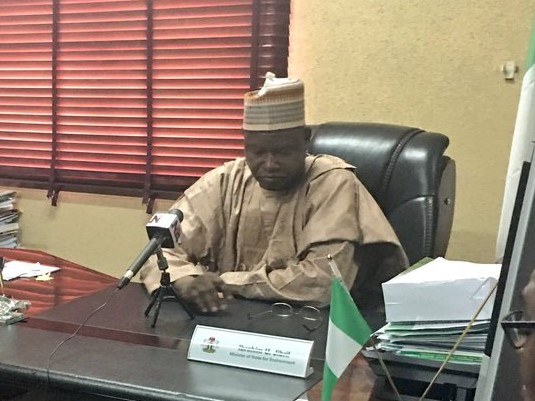Following the review of the report of the survey of Refrigeration and Air-conditioning Manufacturing (RACM) companies under the United Nations Industrial Development Organisation (UNIDO) component of the Hydrochloroflorocarbon Phase-Out Management Plan (HPMP) last August, stakeholders are set to authenticate the statement.

At a daylong forum scheduled to hold in Lagos on Wednesday, July 26, 2017, participants will review and validate the data of Hydrorohlorofluorocarbons (HCFCs) consumption in the the country.
Officials of the Pollution Control & Environmental Health Department of the Federal Ministry of Environment as well as UNIDO will present to key stakeholders of the HPMP the anticipated strategy and schedule of Stage II of the HPMP, just as the gathering will set out to finalise the HPMP Stage II document for submission to the Multilateral Fund for the Implementation of the Montreal Protocol.
Nigeria, as a signatory to both the Vienna Convention (VC) for the Protection of the Ozone Layer and its Protocol, the Montreal Protocol (MP) on Substances that deplete the Ozone Layer, has benefitted through the Multilateral Fund of the Protocol in terms of financial and technical support given to enterprises to phase out the use of Ozone Depleting Substances in their operations.
The HPMP for Nigeria was developed by the Federal Ministry of Environment and UNDP. The project aims to phase-out Hydrorohlorofluorocarbons (HCFCs) by 2040 as part of Nigeria’s obligation as a developing country under the Montreal Protocol which was ratified in 1987, but came into force in January 1988, with 46 signatories and 197 member countries, including Nigeria.
In line with the overarching HPMP implementation strategy for Nigeria, UNIDO is implementing ODS phase-out programmes and projects in the Refrigeration and Air-conditioning Manufacturing Sector (RAMS) for Stage II which aims to phase-out 35 per cent of the consumption of HFCFs in the country. Under the first phase, UNIDO distributed 75 low pressure foaming machines and spare parts and built technical capacity of refrigeration and air-conditioning manufacturers in 13 states across Nigeria.
UNIDO supports developing countries and economies in transition in their environmental management efforts, including the implementation of multilateral environmental agreements. As an implementing agency for the Montreal Protocol since 1992, UNIDO has successfully implemented over 1,200 projects in more than 98 countries and contributed to the phase-out of about 70,287 tonnes of ODS globally.
